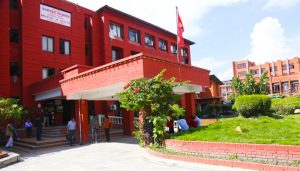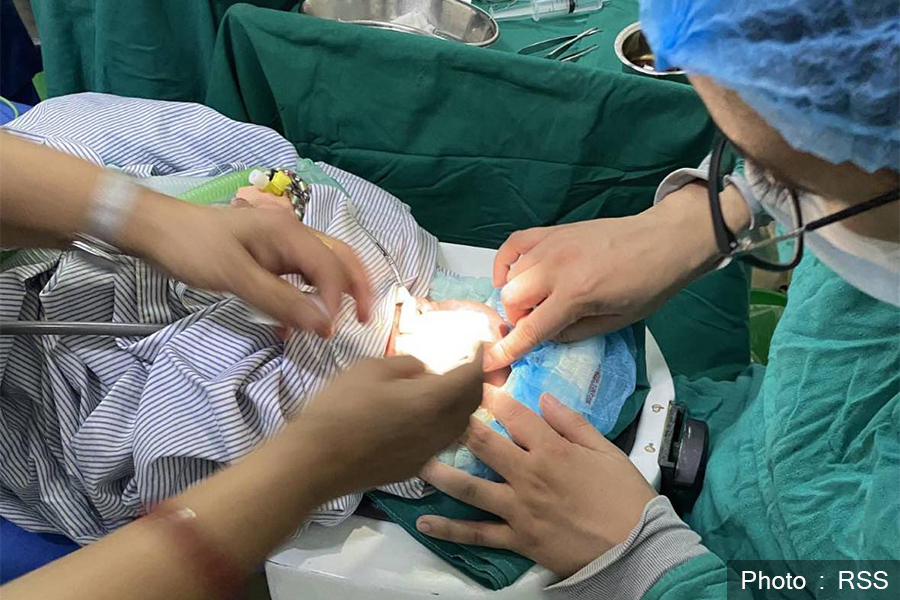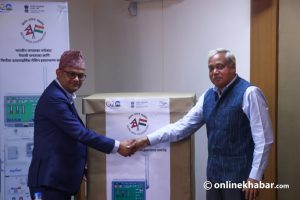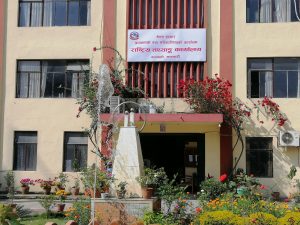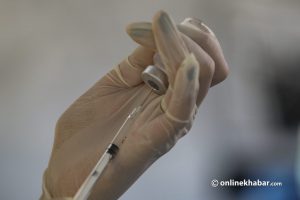With the spike in the number of Covid-19 cases in the country and infection spreading to villages, the government resorted to antigens tests. Most of the PCR testing laboratories are city-centric while it is also technically complex and expensive. Hence, it is not easy to make it available to all and antigen tests come in handy.
In such a situation, experts inform that antigen testing is the best option for preventing and controlling the pandemic. According to them, if the infection could be ascertained at an initial stage, controlling the pandemic would also be effective.
Experts, however, see that the test, which should be carried out rapidly and massively, is being carried out at a snail’s pace. Statistics from the Ministry of Health and Population also make it clear. Only about five thousand antigens tests are performed daily, which according to the experts are not sufficient.
Difference between PCR and antigen tests
Reverse transcription-polymerase chain reaction (RT-PCR) test only takes place in a laboratory. These RNA tests are performed by collecting samples from the mucous membranes of the nose and throat and the virus in the body of the person whose test is performed is ascertained.
The World Health Organization (WHO) has considered the RT-PCR method reliable for testing the coronavirus infection. However, it takes a lot of time to collect samples, take them from rural areas to the laboratory and get the test report.
Therefore, the antigen test, which is a quicker method for identifying the virus, is also approved and launched. The results of the antigen test come in 15 to 30 minutes. Samples are collected from the fluid on both sides of the person’s nose and placed in a kit. One red line is considered negative and two red lines are considered positive.

Compared to the PCR, it does not require expensive equipment and reagents, so it is considered relatively inexpensive and thus, considered ideal for mass testing. This helps identify the infection quickly and help the infected person get isolated on time thereby saving from a situation when the patient might need hospitalisation.
An easy ‘tool’ to prevent the spread
The spokesperson of the Ministry of Health and Population, Dr Krishna Prasad Paudel, says antigen testing is used as a simple tool for controlling and preventing the spread of coronavirus infection.
“Even though 92 PCR testing laboratories have been set up across the country, all the laboratories are in cities or at district hospitals,” he reports, “Antigen testing is the fastest and easiest way to identify a virus. Therefore, with this tool, it is easier to isolate the infected so that the community can be protected from further risks.”
Suppose, one has to perform a test in a village in Bajura, a remote district in the Sudurpaschim province. If it is to perform a PCR test instead of the antigen one, a swab would have to be brought to Dadeldhura. And, it would take up to three or four days for the test reports to come. In this time, if someone is to be tested positive, they could have already spread the infection to many other people, according to him.
“Antigen testing can detect infection at times of peak viral load in the person. And, when the viral load is high, the risk of spreading the virus to another person is also higher. If we can identify such people and isolate them from the community, the virus spread can be controlled, ”informs spokesperson Dr Paudel.

Further, he adds, “As of now, there is the lockdown in many parts of the country, and accordingly, there is a restriction on transportation. In this case, it is not possible to come to a district hospital for testing. So antigen testing is appropriate.”
Likewise, Dr Sher Bahadur Pun, an infectious disease specialist at Sukraraj Tropical and Infectious Disease Hospital, also mentions that the virus can be identified quickly through antigen testing. It would be best to use it during a pandemic as the disease can be detected within half an hour, he says.
“This method can be used in a large area and is easy to carry. You don’t need very skilled and learned human resources to perform this test. Volunteers with general training can also perform it.”
According to Dr Pun, no further confirmation is required if the result of the antigen test is positive. But, if the result of the antigen test is negative and the person is showing strong Covid-19 symptoms, a PCR test should be done.
Need to increase the number
Another infectious disease specialist Dr Janak Koirala also considers antigen testing to be the best alternative to identify the coronavirus infection in villages. Due to the geographical condition of Nepal, limited human resources and other resources available, hence, antigen testing would be appropriate for combating the pandemic.
“PCR testing laboratories are city-centric. But, the infection has now spread to villages. In such a risky situation, it is not appropriate to wait for a PCR test. Instead, it is better to expand the antigen testing.”
He states that if more than 50,000 antigen tests are done daily, the infected can be identified, isolated from the community and kept in isolation for further treatment. Even in Nepal’s neighbour India, antigen testing was carried out at the community level when the pandemic reached its peak even there. Dr Koirala claims that though the government had sent antigen kits to the municipalities, the tests have not been carried out enough.
Similarly, virologist Dr Basudev Pandey suggests antigen testing should be expanded massively in order to control the pandemic. Not everyone can have access to a PCR testing facility, hence there is no alternative to antigen testing, says Dr Pandey.
“We need to be able to convince people that this test is effective, only then can the people themselves become aware of the test and come forward for the testing.”
The Health Ministry spokesperson Dr Paudel also admits antigen testing needs to be ramped up further.
Availability of the kits?
According to Dr Poudel, 250,000 antigen kits were initially received in the form of a grant. The government also bought the same number of kits additionally.
According to the statistics of the ministry, about 1.25 million antigen kits as grant assistance have been received from various countries and organisations recently. Dr Paudel says the government is preparing to purchase an additional 600,000 kits.







